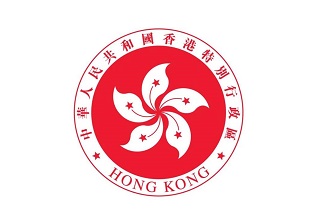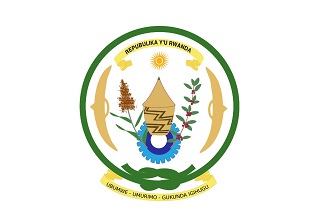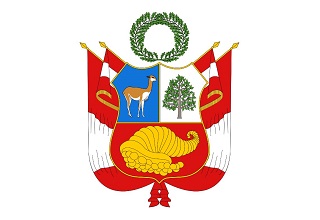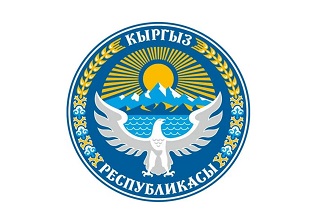Regarding the Inspection and Quarantine Requirements for the pig semen from Netherlands to China
1. Basis for inspection and quarantine
(1) Biosecurity Law of the People's Republic of China;
(2) Law of the People's Republic of China on the Quarantine of Animals and Plants Entering and Leaving China and its implementing regulations;
(3) Protocol between the General Administration of Customs of the People's Republic of China and the Ministry of Agriculture, Nature and Food Quality of the Kingdom of the Netherlands on Quarantine and Hygiene Requirements for Imported Pig Genetic Material from China from the Netherlands (hereinafter referred to as the "Protocol").
2. Importation of goods is permitted
Pig semen.
3. Quarantine approval requirements
(1) The Ministry of Agriculture, Nature and Food Quality of the Kingdom of the Netherlands shall confirm that the Chinese Customs has issued a valid Quarantine Permit for Imported Animals and Plants to Chinese importers before carrying out inspection and quarantine in accordance with the provisions of this Protocol and the requirements of the Quarantine Permit for Imported Animals and Plants.
(2) Each "Quarantine Permit for Imported Animals and Plants" only allows the import of one batch of pig semen.
4. Animal health requirements
(1) The Netherlands confirmed that the Netherlands is free of foot-and-mouth disease, swine vesicular disease, swine fever, African swine fever, and Nipah disease in livestock. If the above disease occurs in the Netherlands, the Netherlands should notify China in accordance with the rules of the World Organisation for Animal Health (WOAH) and stop exporting pig semen to China.
(2) The Netherlands confirmed that the pig semen production center was free of bovine tuberculosis, pseudorabies, brucellosis, porcine tegasea virus encephalomyelitis, swine TT disease, Japanese encephalitis, and vesicular stomatitis. In the event of an outbreak of this disease in the Netherlands, the Netherlands shall notify China in accordance with the WOAH rules, and the semen collection center where the disease occurs shall immediately stop exporting pig semen to China. At the same time, other export semen collection centres should increase testing for the disease until the Netherlands is confirmed to be free of the disease.
5. Requirements for Semen Collection Centers
Semen collection centers that intend to export pig semen to China must be registered in China and export pig semen to China within the time limit specified by China, and shall meet the following requirements:
(1) Established with the approval of the competent authority of the Netherlands;
(2) meet the requirements of biosecurity construction, and must have appropriate rodent prevention and control measures;
(3) There should be a Dutch-accredited veterinarian responsible for supervising the health of donor pigs and the hygienic conditions for semen collection, storage and transfer in semen collection centers;
(4) The production and processing of semen comply with the standards recommended in the relevant chapters of the WOAH Terrestrial Animal Health Code, and the animal health requirements of the EU Directive 90/429EEC (as amended) on the trade and import of pig semen in the EU.
(5) The person in charge of the semen collection center must understand the content of this agreement and implement it.
(6) The semen collection center shall monitor pseudorabies, tuberculosis, brucellosis, psittacosis, leptospirosis, porcine reproductive and respiratory syndrome, porcine circovirus disease, porcine parvovirus, porcine influenza, porcine infectious gastroenteritis, porcine atrophic rhinitis, porcine mycoplasma pneumonia and toxoplasmosis.
In the event of the above-mentioned epidemic, the operator of the semen collection center shall promptly report to the Netherlands and remove the positive animal, and the center shall not export pig semen to China for 12 months.
(7) During the period from the beginning of the inspection to the completion of the quarantine certificate, all animals in the semen collection center are clinically healthy and free of any clinical signs of infectious diseases.
(8) The diluent used for the export of semen to China shall not contain animal infectious disease pathogens and animal protein components that have not been approved by China.
6. Requirements for donor pigs
6.1 Donor pigs must have been raised in the Netherlands for at least 6 months and have never been used for natural mating. Donor pigs have been housed at the semen collection center for at least 3 months when they start collecting semen for export to China.
6.2 Donor pigs and their close relatives must have no clinical signs of genetic defects. Records of the descendants of donor pigs should be kept for as long as possible to ensure that they are free of genetic defects. Boar records should also include fertility, and donor pigs must have normal libido.
6.3 Within 12 months prior to the first collection of this batch of pig semen exported to China, donor pigs should be tested for tuberculosis with bovine tuberculin and pseudorabies and brucellosis by ELISA, and the semen from donor pigs with negative results can be exported to China.
6.4 Within 60 days before the first collection of semen from this batch of pigs exported to China, the following epidemic disease tests were carried out on the donor pigs one by one, and the results were all negative:
(1) Psittacosis fever (Chlamydia abortus): complement fixation test, serum dilution 1:10 is negative; or ELISA negative.
(2) Porcine parvovirus disease: red blood cell agglutination inhibition test, serum dilution 1:10 is negative; or ELISA negative; or PCR negative. In the case of vaccination, they are exempt from testing, but the vaccine used for immunization should be approved by the official Dutch authorities for immunization in accordance with the prescribed immunization schedule.
(3) Porcine circovirus type 2 infection: serum neutralization test, serum dilution 1:8 is negative; or complement fixation test, serum dilution 1:5 is negative; or ELISA is negative. In the case of vaccination, they are exempt from testing, but the vaccine used for immunization should be approved by the official Dutch authorities for immunization in accordance with the prescribed immunization schedule.
6.5 Within 30 days before the first collection of semen from this batch of pigs exported to China, the following epidemic diseases were tested for the following diseases of the donor pigs one by one, and the results were all negative:
(1) Porcine reproductive and respiratory syndrome: indirect immunofluorescence antibody test or immunoperoxidase monolayer test, serum 1:10 dilution is negative; or ELISA is negative.
(2) Porcine infectious gastroenteritis: serum neutralization test, serum dilution 1:8 is negative, or blocking ELISA test result is negative.
(3) Porcine infectious pleuropneumonia: The semen collection center uses PCR method to detect all serotypes of porcine infectious pleuropneumonia on the semen of this batch of donor pigs.
(4) Influenza A (H1N1) in pigs: if there are clinical symptoms, PCR or ELISA test is used, and the result is negative.
6.6 Within 30 days before the first collection of semen from pigs exported to China, the known serotype Leptospira in the Netherlands was detected by microagglutination test (MAT or ELISA), and the result was negative. The leptospira serotypes available in the Netherlands are: L. leptospira. bratislava, L. pomona and L. tarassovi。 If a new leptospira epidemic serotype emerges in the Netherlands, the Netherlands will notify China in a timely manner.
6.7 In the case of frozen semen, 28-40 days after the last sperm collection, the donor pigs are quarantined for the epidemic diseases described in paragraphs 6 (4), 6 (5) and 6 (6), and the results are all negative.
7. Packaging, storage and shipping requirements
Before departure, pig semen exported to China should be kept in a safe place recognized by the Dutch competent authority and prevent contamination; The exported pig semen must be sealed under the supervision of the official Dutch veterinarian, and the pig semen of different recipients and consignors shall not be mixed. Pig semen destined for China shall be transported to China's port of entry within the prescribed time in accordance with the route specified in the Quarantine Permit for Imported Animals and Plants issued by China.
8. Quarantine certificate requirements
If the quarantine is qualified, the Netherlands will issue a quarantine certificate according to the certificate sample confirmed by both parties, and the quarantine certificate shall be transported to China together with the exported pig semen. When pig semen arrives at the port of entry in China, if there is no valid quarantine certificate or no quarantine certificate, it will be returned or destroyed.
GACC
May 16, 2024




